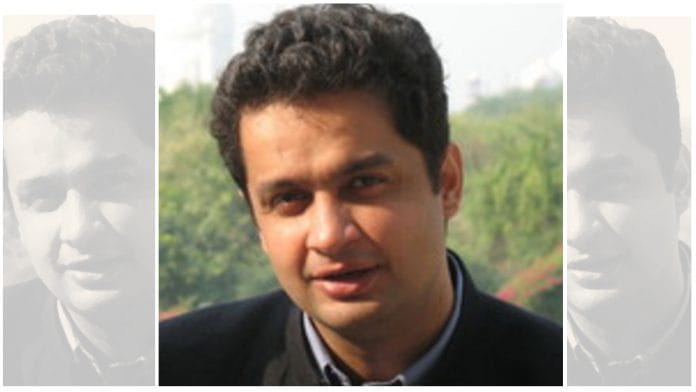New Delhi: The Narendra Modi government’s Rs 1.7-lakh crore package announced on 26 March to tackle the Covid-19 lockdown was more of a relief measure than fiscal stimulus, Chetan Ghate, an independent member of the Reserve Bank of India (RBI)’s monetary policy committee noted in the panel’s meet last month.
In the minutes of the MPC meeting on 27 March released Monday, Ghate favoured a second stimulus package that predominantly comprises tax breaks rather than enhanced government spending.
Calling the contours of the second fiscal stimulus policy a design challenge, Ghate said studies show that internationally, an increase in government spending by Rs 100 increases GDP by less than Rs 100, indicating that government spending multipliers are less than 1.
“Tax multipliers, on the other hand, tend to be larger (greater than one). This suggests that the ideal fiscal stimulus to deal with COVID-19 should be loaded on the tax side rather than the government spending side. India, however, has limited tax penetration,” he said.
Ghate, who is a professor at the Indian Statistical Institute, went on to add that Modi government’s Rs 1.7 lakh crore package was more in the nature of a social insurance.
“A relief is not a permanent fix. The idea of the measure announced by the government is to weather the storm so that no one has to go without food and spending on essential items. The effect of this measure will be to lead to a small rise in consumption in the short run, but the effect will dissipate quickly,” Ghate said.
Also read: Ex-IAS officer says lockdown will cost India Rs 8 lakh crore, spells out recovery road map
What the MPC did at the meeting
Finance Minister Nirmala Sitharaman had announced the government package on 26 March mainly aimed at providing free food grains and cash transfers to the most vulnerable Indians.
Just a day later, the RBI followed up with a slew of measures such as policy rate cuts and a three-month loan moratorium for all term loans, including housing and auto loans.
In the monetary policy meeting that was advanced to the last week of March from the scheduled date in April, Chetan Ghate advocated a 50 basis points cut in key policy rates.
The MPC, however, went ahead with a 75 basis points rate cut.
The minutes of the meeting revealed that Ghate had pointed to former US Federal Reserve chairman Ben Bernanke over the latter’s views that monetary policy has never proved able to reverse large shocks. It only helps to mitigate the worse effects of shocks, and speeds up the recovery.
Pami Dua, another independent member on the MPC who advocated a 50 basis points cut, noted that fiscal policy has a major role to play in combating the economic effects of the pandemic.
Ravindra Dholakia, another external member, also observed that the central government has already started providing a fiscal boost and may continue to do so to revive the economy.
Also read: Private consumption at serious risk from Covid-19, rupee to be under pressure, says RBI






